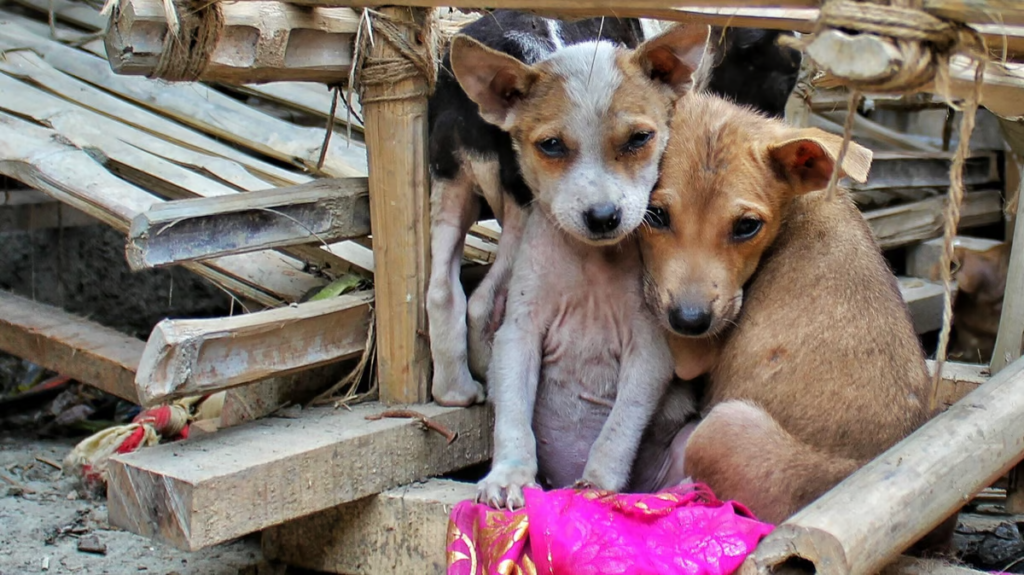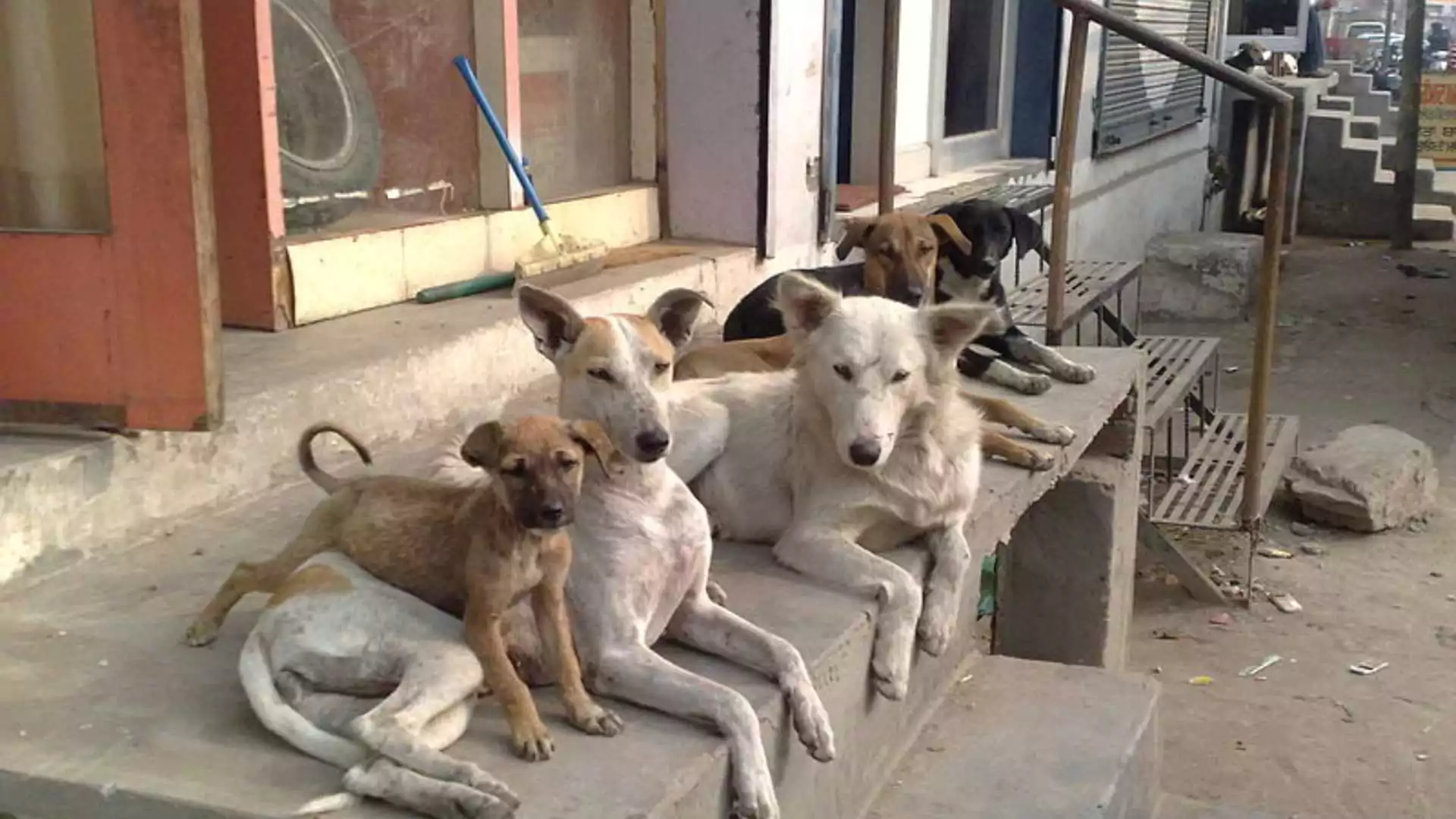Morocco to Euthanise 3 Million Stray Dogs as part of its preparations for the 2030 FIFA World Cup, a decision that has sparked widespread outrage and concern among animal welfare organizations and activists globally.
The country, which will co-host the tournament alongside Spain and Portugal, has reportedly already begun the process, aiming to reduce the population of stray dogs in its cities to create a more appealing environment for the influx of international visitors expected during the event.
Stray Dog Culling: A Controversial Preparation Strategy
This is the first time Morocco will host FIFA World Cup matches, marking a significant milestone for the African nation. However, the preparations have taken a dark turn with reports indicating that the government has already executed thousands of stray dogs, with plans to significantly escalate these efforts in the coming years.
The International Animal Coalition has revealed that the methods being employed to euthanize the dogs are inhumane and raise serious ethical concerns. According to the coalition, strychnine, a highly toxic and bitter chemical pesticide, is being used to poison the dogs.
This method is particularly cruel, as strychnine poisoning causes intense suffering before death. Additionally, reports suggest that some stray dogs are being shot in the streets or captured and transported to slaughterhouses, where they are killed en masse.
Read : Morocco: A Captivating Blend of Culture and Landscape
The government’s justification for this massive culling operation lies in its desire to present a “cleaner” and “nicer” image of its cities to international visitors during the World Cup. Stray dogs are commonly seen in Morocco’s urban areas, where they scavenge for food and roam freely.
Read : Palestinian Footballer Ahmad Abu al-Atta Dies After Airstrike Hits His Home in Gaza City
While the issue of stray dog overpopulation is undeniable, the decision to resort to such drastic measures has been met with widespread condemnation from animal rights organizations and ethical observers.
The Ethical and Humanitarian Concerns
The culling of 3 million stray dogs raises numerous ethical questions about the treatment of animals and the moral implications of prioritizing aesthetics over humane solutions.
Animal welfare organizations worldwide have expressed their dismay over Morocco’s approach. Critics argue that instead of resorting to mass euthanasia, the country should focus on more sustainable and humane solutions, such as sterilization and vaccination campaigns.
Mass euthanasia, particularly using methods as painful as poisoning with strychnine, has been deemed unacceptable by animal rights groups.

The World Health Organization (WHO) has also stated that killing stray animals does little to address the root causes of overpopulation and is not an effective long-term solution. Instead, they advocate for community-driven initiatives to control and manage stray populations in a humane and ethical manner.
The psychological impact on communities is another concern. Stray dogs are often a familiar presence in many neighborhoods, and their sudden disappearance, coupled with the knowledge of how they were killed, can create distress among residents, particularly children. Moreover, the use of firearms in urban areas to shoot dogs poses risks to public safety and can lead to traumatic experiences for bystanders.
FIFA’s Silence and Global Backlash
The global footballing community has begun to take notice of the controversial preparations in Morocco, with many calling for FIFA to intervene. As the governing body for the World Cup, FIFA holds significant influence over host countries and has the power to advocate for ethical practices in preparation for its tournaments.
However, FIFA has yet to comment on the situation, drawing criticism from animal welfare groups and activists. Many are urging FIFA to take a stand and ensure that host nations adhere to ethical and humane practices in their preparations for the World Cup.
Critics argue that FIFA’s silence on the matter not only enables such actions but also undermines the organization’s commitment to social responsibility and sustainability.

The backlash has also extended to social media, where animal rights activists and football fans alike have expressed their outrage. Hashtags like #SaveMoroccanDogs and #FIFAEthics are trending, with users calling for a boycott of the World Cup unless Morocco abandons its plans for mass culling and adopts humane alternatives.
Prominent celebrities and organizations have also joined the campaign, demanding that FIFA and the Moroccan government take immediate action to stop the culling.
This growing movement highlights the increasing global awareness and concern for animal rights, with many arguing that hosting a prestigious event like the World Cup should not come at the expense of ethical values.
The Need for Humane Solutions
While Morocco’s desire to present a cleaner and more organized image for the World Cup is understandable, the method chosen to address the issue of stray dogs is neither sustainable nor humane.
Effective stray dog management requires a multifaceted approach that addresses the root causes of overpopulation while ensuring the welfare of animals and the safety of communities.
Sterilization and vaccination programs have proven to be effective in managing stray dog populations in many countries. For example, India and Turkey have implemented large-scale sterilization initiatives to control stray dog numbers while also vaccinating them against rabies, a common concern in areas with high stray populations. These programs not only reduce the number of stray dogs over time but also improve public health and safety.

Community involvement is another crucial aspect of successful stray dog management. Educating the public about responsible pet ownership and encouraging adoption of stray animals can significantly reduce the number of dogs on the streets.
Collaboration with local animal welfare organizations and international bodies can provide the necessary resources and expertise to implement such programs effectively.
Investing in these humane and long-term solutions would not only address the issue of stray dog overpopulation but also enhance Morocco’s reputation on the global stage. By demonstrating a commitment to ethical practices and sustainability, the country could set an example for other nations preparing for major international events.
The decision by Morocco to euthanize 3 million stray dogs as part of its preparations for the 2030 FIFA World Cup has sparked outrage and raised serious ethical concerns. The use of inhumane methods such as poisoning and shooting highlights the need for a global conversation about humane and sustainable solutions to stray animal management.
While the issue of stray dog overpopulation is a genuine challenge, it cannot be addressed through cruelty and short-term measures.

Morocco has an opportunity to rethink its approach and adopt humane strategies that align with global standards of animal welfare. By doing so, the country can not only prepare for the World Cup but also set a positive example for other nations and demonstrate its commitment to ethical values.
The silence from FIFA on this issue is concerning and underscores the need for the organization to take a more active role in promoting humane and ethical practices among host nations. As the global footballing community looks forward to the 2030 World Cup, it is essential that the tournament is remembered not just for the games but also for the values it upholds.
Animal welfare organizations and activists will continue to advocate for the rights of Morocco’s stray dogs, hoping to bring an end to the culling and push for humane alternatives. The world is watching, and the actions taken by Morocco and FIFA in the coming months will have a lasting impact on the perception of the tournament and the values it represents.

